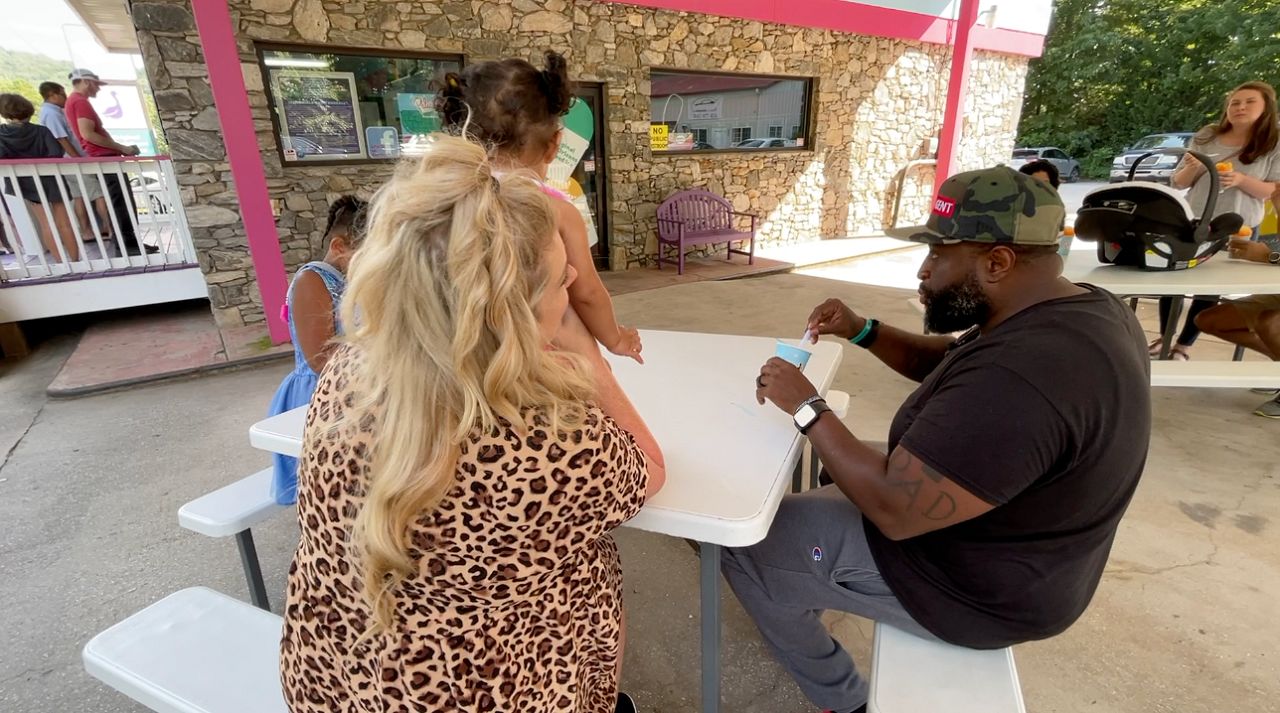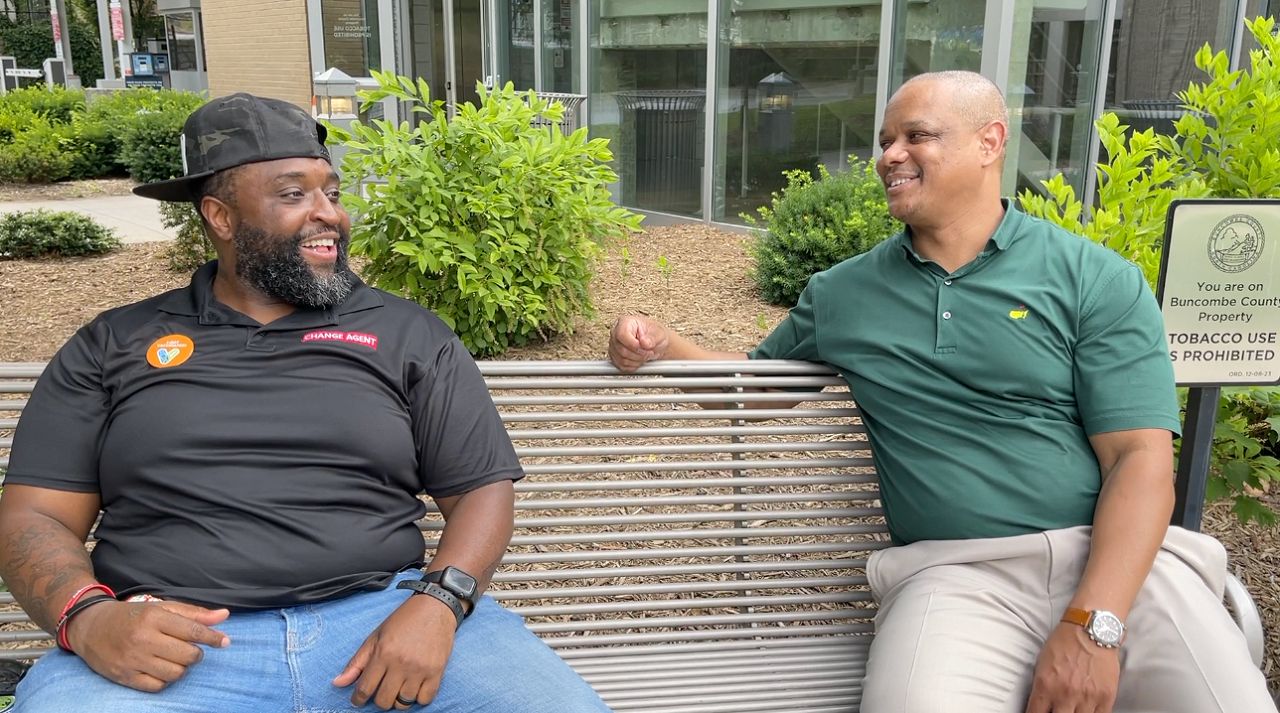ASHEVILLE, N.C. — A formerly incarcerated man in Asheville has dedicated his life to helping others re-enter society.
What You Need To Know
Philip Cooper is a "Change Agent"
Cooper is the economic and workforce development director of the YMI Cultural Center in Asheville
He was formerly incarcerated and now in recovery
Philip Cooper, a father of five, is the economic and workforce development director for the YMI Cultural Center in Asheville. He also calls himself a "Change Agent."
Cooper said the little things can make a big difference, especially for those with no support. That’s why his mission is doing what he can to help those who stand where he once stood.
Cooper spent more than three years in prison for drug trafficking.
“There’s a rap song (by) Notorious B.I.G. He said ‘never get high on your own supply,’ but I didn't follow that rule,” Cooper said.
That’s how the drug addiction began. He started selling drugs and using them. Cooper said addiction runs in his family.

Cooper got out of prison in 2011, and his “felon” label felt like a second sentence that carried with him everywhere. Cooper couldn’t get a job with his record and getting food stamps wasn’t an option. Neither was living on his own.
“Halfway houses, to be honest, they can be over 30% of their income,” Cooper said.
Even among other formerly incarcerated people, he said he noticed an obvious discrimination within the workforce.
“I see white folks going to get jobs, and I still see some Black folks with the same charges can't get a job,” Cooper said.
It’s why his mission now is helping people like him. He’s a bridge between people with a record, who want a job, and employers.
“People who aren't familiar with how the system works and what the charges are, they can make their own assumptions of how dangerous a person is,” Cooper said, which is dangerous in itself. Assumptions don’t create an inclusive environment for all.
With his role at the YMI Cultural Center, he’s educating bosses. Cooper asks they be willing to meet him halfway.
For example, Cooper said a hiring manager’s appearance can be more intimidating than they realize for people who spent years in prison.
“Like your suit and tie could turn somebody off,” Cooper said. “You might look like a detective, and then the next thing you know they can't open up to you about things that they need to open up to you about.”
Cooper said the general public can be allies too, by being careful with words like “success.”

“Because one day clean is a success. You know, a person getting a job at Taco Bell is just as successful as a person getting a job at Mission Hospital,” Cooper said.
The little thing he found that can make all the difference is having a culturally aligned mentor. Cooper has one himself in Brent Bailey. Bailey is the coordinator for Buncombe County Project Re-entry and is also in recovery.
Bailey and Cooper talk regularly, years later after he was part of the program.
“When he was my facilitator for Project Re-entry, once he had revealed he was formerly incarcerated himself, that’s when I was like ‘hmm OK, maybe this can be done,’” Cooper said.
Both men show how a second chance can go a long way.



